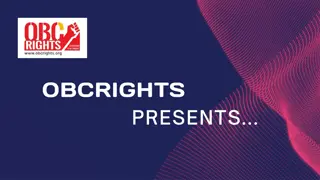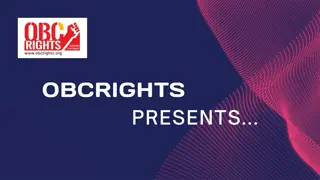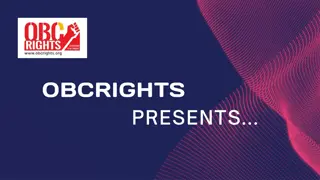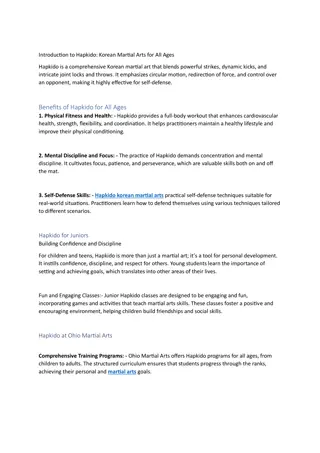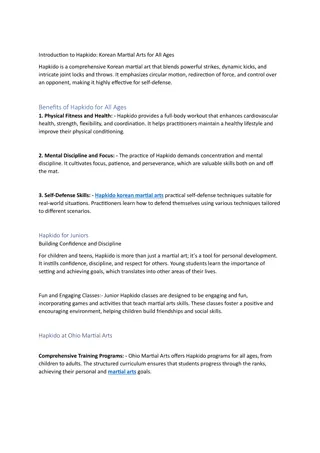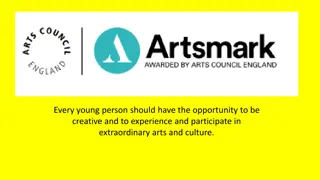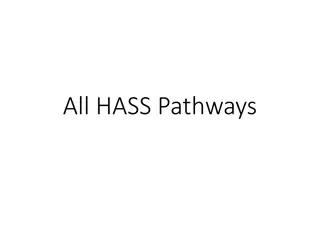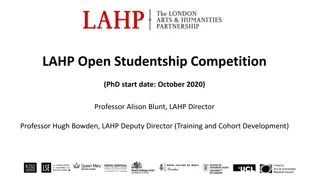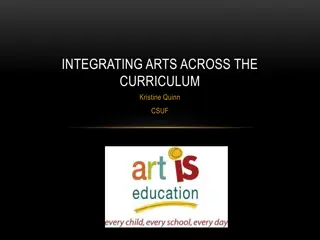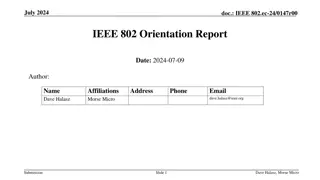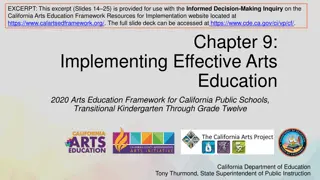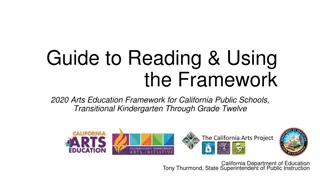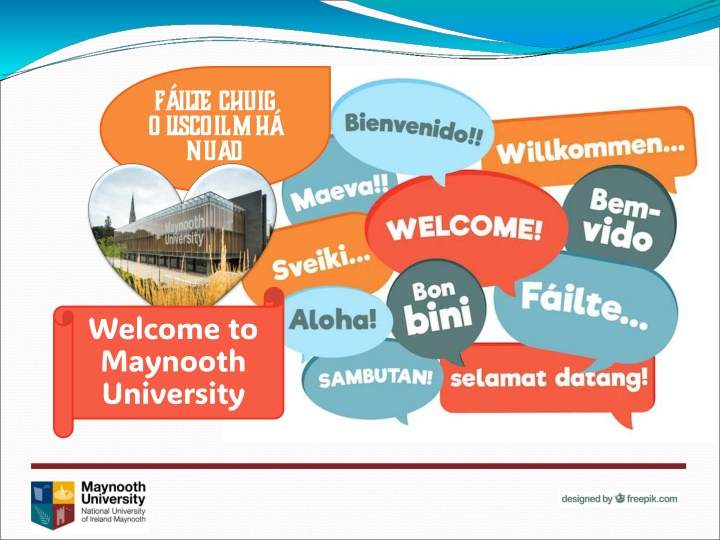
Guide to University Life at Maynooth University
"Discover the exciting transition from secondary school to university life at Maynooth University. Learn about academic terms, subjects, modules, and critical skills to excel in your educational journey. Find out about the flexibility and choices offered in the MH101 Bachelor of Arts Degree program."
Download Presentation

Please find below an Image/Link to download the presentation.
The content on the website is provided AS IS for your information and personal use only. It may not be sold, licensed, or shared on other websites without obtaining consent from the author. If you encounter any issues during the download, it is possible that the publisher has removed the file from their server.
You are allowed to download the files provided on this website for personal or commercial use, subject to the condition that they are used lawfully. All files are the property of their respective owners.
The content on the website is provided AS IS for your information and personal use only. It may not be sold, licensed, or shared on other websites without obtaining consent from the author.
E N D
Presentation Transcript
Filte chuig O llscoilMh Nuad Welcome to Maynooth University
University Life Congratulations on joining Maynooth University! We know that this is an exciting time, as you are starting a new chapter in your life. Understanding the difference between secondary school and university is a big step towards making a successful transition into university life. Focus on your passion: you can pick what you want to study and what you want to specialise in. Motivation and self-study: you ll need to be a lot more motivated as you have less contact time with your teachers (lecturers) than you would at school, and more hours of self-study time. Self-reliance and independence: you will be organising your own learning and developing your own study schedule. We are excited to support you on your journey to becoming a MU Bachelor of Arts student, but keep in mind that you are responsible for your own education.
University Language Programme: The general term we use to describe what you study. Your programme leads to a degree, and the content will depend on the degree you are taking. Semester: We divide the academic year into two parts called semesters. The first semester runs from Sept to Jan, and the second semester runs from Feb to May. Subject: Many programmes are divided into different subjects. In most degrees you will graduate in either one or two subjects. However, you will often take more subjects in first year. Module: The subjects are made up of modules. Each module is a substantial amount of study which is assessed separately. Together, they contribute to an overall subject mark. Credits: The amount of work involved in a module is indicated by its credit weight. In first year, most modules are 7.5 credits, a normal year of full-time study is 60 credits. So, in first year you will typically do eight modules, four in the first semester and four in the second semester.
A wide variety of interesting subjects and hundreds of subject combinations are available There are 31 subject options organised in 6 timetable groups. You can choose 2, 3 or 4 subjects, but a maximum of one subject per group. Critical Skills available with all subject combinations. You can take any combinations, as long as there is no timetable clash, and you meet the entry requirements (Nua-Ghaeilge: H4, Music: H5, Mathematics (Pure): H2). Except for the above, most subjects require no previous knowledge (although we might recommend certain minimum Leaving Certificate grades for some subjects). 4 weeks to decide: you can make changes to your subject choices during the first 4 weeks (however, you may miss some content if you wait too long.) FLEXIBILITY & CHOICE An Overview of MH101 Bachelor of Arts Degree
Critical Skills Transition to university: Critical Skills is designed to help first-year students to learn, experience, practice, and develop essential skills that will support their University career and/or are highly valued by today s employers. Available with all subject combinations, offered in thematic and universal version; you just choose the one that most appeals to you. Skills include Class design Academic writing Analysis and use of data Analytical thinking Communication Developing learning skills Information processing Interpersonal skills Optional In 1styear only 15 credits Small group sessions Peer-group formation through active learning Feedback from instructor and peers
Flexible first year BA structure First year: 60 credits / 2 semesters. Several ways to collect your 60 credits 4 subjects (4 x 15 credits): This allows you to study the greatest range of subjects and decide which you prefer. 3 subjects + Critical Skills (4 x 15 credits): This allows you to take a range of subjects and also take the Critical Skills course. A double subject and two others (1 x 30 credits and 2 x 15 credits): This allows you to take three subjects, but to devote half of your time to one subject. Double subjects can be: Law, Business, History, Music, English, Languages for beginners, International Development, Accounting, Geography, Maths (Pure), Anthropology, and Computer Science. A double subject, one other subject and Critical Skills (1 x 30 credits and 2 x 15 credits): In this option you take two subjects along with the Critical Skills first year course. Two double subjects (2 x 30 credits): In this option you take only two subjects in first year.
After First Year Continue MH101 with Double Major: take two subjects equally to degree level. Major with Minor: place a greater emphasis on one subject but continue to study a second subject. Single Major: specialise in just one subject in your final years. (There are only a limited number of subjects that are available as a Single Major.) Electives (in 2nd year): optional 10-credit short courses to make more of your university education. Students who take an Elective do 10 credits less in their other subjects. There are more than 30 Electives available this year. Examples of available Electives this year: Film and Screen Studies Influential Ideas in Economics Global Environmental Change Great Books Irish Cultural Heritage Philosophy of the digital age and digital ethics continued on next slide
After First Year Transfer options: there may be an option to move into a specialised degree Following successful completion of 1styear of the MH101 degree Depending on the subjects you chose in 1styear and your results Erasmus or Study Abroad (after 2nd year): MU currently has almost 200 partners in 30 countries on 5 continents. Students taking this option graduate with a BA International degree after four years. New transfer option: BCL Law and Languages MH503
Subject Choice & Programme Options For assistance with your subject choices, subject combinations, programme options and settling into University, please contact: Programme Advisory Office Email: programme.choices@mu.ie Website: www.maynoothuniversity.ie/programme-advisory-office Email your query to the staff at the Programme Advisory Office, who are ready to assist and advise you with any programme-related decisions. Stay informed throughout first year: www.maynoothuniversity.ie/year-1-info
Academic Year 2024-25 Semester 1 Key Dates for 1stYear Students 16 - 20 September 2024 Orientation week 23 - 27 September 2024 Commencement of lectures 18 October 2024 Change of Subject Deadline for First-Year Students 28 October 1 November 2024 Study Week 16 - 20 December 2024 Last week of lectures 23 December 2024 3 January 2025 Christmas Vacation 6 - 11 January 2025 Study period 10 January 2025 January examinations commence 13 - 25 January 2025 Exam weeks 27 - 31 January 2025 Inter Semester Break
Win with us By scanning the QR code, you can download these slides and by answering a few quick questions, you can also win a 20 euro voucher!




